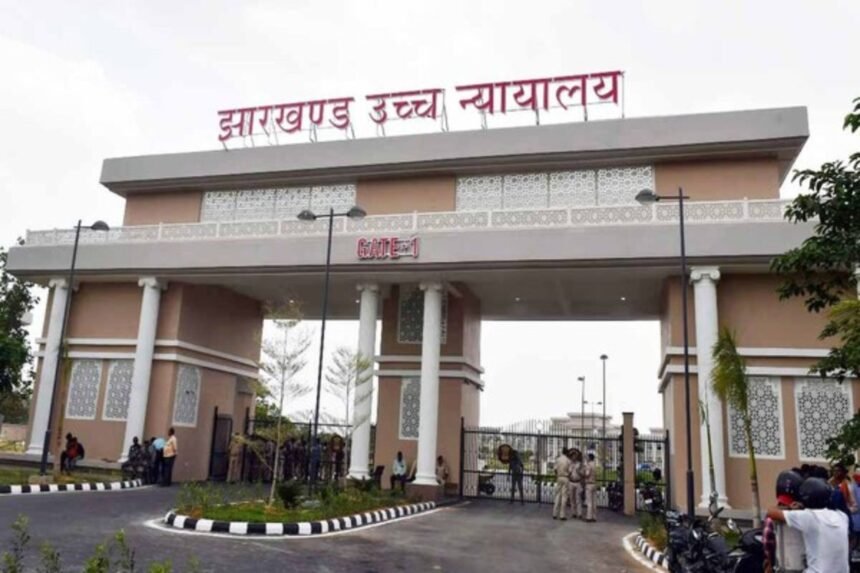Sahibganj, October 29, 2024: In a significant development in the Sahibganj child trafficking case, the Jharkhand High Court has expressed discontent with the Unique Identification Authority of India (UIDAI) for refusing to release biometric data pertaining to missing children in Sahibganj. The court highlighted the urgency of accessing this data to aid in locating the children, while UIDAI defended its stance by citing legal limitations. This tension over data access underscores the ongoing struggle to address child trafficking cases in the region.
High Court Questions UIDAI’s Rigid Approach in Sahibganj Case
During the hearing of a criminal appeal related to child trafficking allegations against accused Kuldev Sah, the Jharkhand High Court pressed UIDAI on why it declined to provide biometric details, specifically fingerprints and retinal scans of the missing children. UIDAI maintained that legal restrictions prevent it from disclosing individuals’ biometric information, even in cases concerning vulnerable children.
The court, however, emphasized that the gravity of child trafficking warrants a flexible interpretation of these laws, as data access could potentially expedite search efforts. The case has drawn significant public and judicial attention due to concerns that UIDAI’s stance may impede critical investigative progress in identifying and recovering missing children.
UIDAI Asked to Review Policy for Missing Children Cases
Expressing dissatisfaction, the High Court urged UIDAI to reconsider its policy and to act with compassion in matters involving child safety. A bench of judges stated that while legal frameworks are crucial, they should not become barriers in cases as sensitive as child trafficking. The court argued that the release of biometric data in controlled circumstances could play a pivotal role in helping law enforcement locate missing children and protect those at risk.
UIDAI’s counsel informed the court that biometric data release requires compliance with stringent guidelines under the Aadhaar Act. Yet, the court indicated that exceptions should be considered for specific cases, especially those involving missing minors. It also directed UIDAI to respond promptly with a decision on the data release and to submit an affidavit outlining any developments by the next hearing.
Jharkhand State Government Ordered to Report on Efforts to Locate Missing Children
The Jharkhand High Court also addressed the state government, seeking updates on the steps taken to locate the missing children in Sahibganj and measures to prevent further incidents of child trafficking. The court directed the state to detail its current child trafficking prevention initiatives and its investigative actions in the Sahibganj case.
According to the state’s recent report to the court, efforts are underway to locate the children, but significant challenges persist due to lack of immediate access to vital biometric data. This obstacle, officials noted, has limited their ability to conduct more comprehensive identification efforts.
Background: Sahibganj Child Trafficking Case
The Sahibganj child trafficking case began with the 2018 disappearance of a minor boy from Neura Panchayat in Sahibganj, leading his family to file a complaint against the accused Kuldev Sah. The boy’s family, supported by local activists, has since pushed for urgent intervention, bringing the case to the High Court in hopes of expediting the investigation.
A second case was also registered in Sahibganj’s Borio Police Station by another family whose child disappeared in 2014. Allegations have surfaced that both cases involve larger trafficking networks, intensifying the demand for rapid resolution. Local communities and child protection organizations have voiced concerns that bureaucratic challenges and restricted data access are exacerbating the struggle to locate these missing children.
High Court Demands Swift Action
With cases of missing minors in Sahibganj mounting, the Jharkhand High Court’s directive aims to mobilize both state and central agencies in supporting the search efforts. The court’s instructions highlight the need for improved collaboration between UIDAI and law enforcement to protect vulnerable children at risk of trafficking.
UIDAI has been given until the next court session on December 4 to re-evaluate its policy on biometric data access in cases of missing children. Additionally, the Jharkhand government is required to submit an action plan to address both the Sahibganj case and wider child trafficking concerns in the state.
As the investigation continues, the High Court’s intervention underscores the pressing need for reform in handling sensitive data in child trafficking cases and brings renewed attention to protecting at-risk children across Jharkhand.
Stay Updated with the Latest News in Jharkhand!
Be the first to know every important news, from Jharkhand Politics to Jharkhand News. We keep you prepared for every moment. Follow us for Breaking News in Jharkhand and never miss out on Jharkhand Trending Topics!
Stay connected with Jharkhand Headlines!






